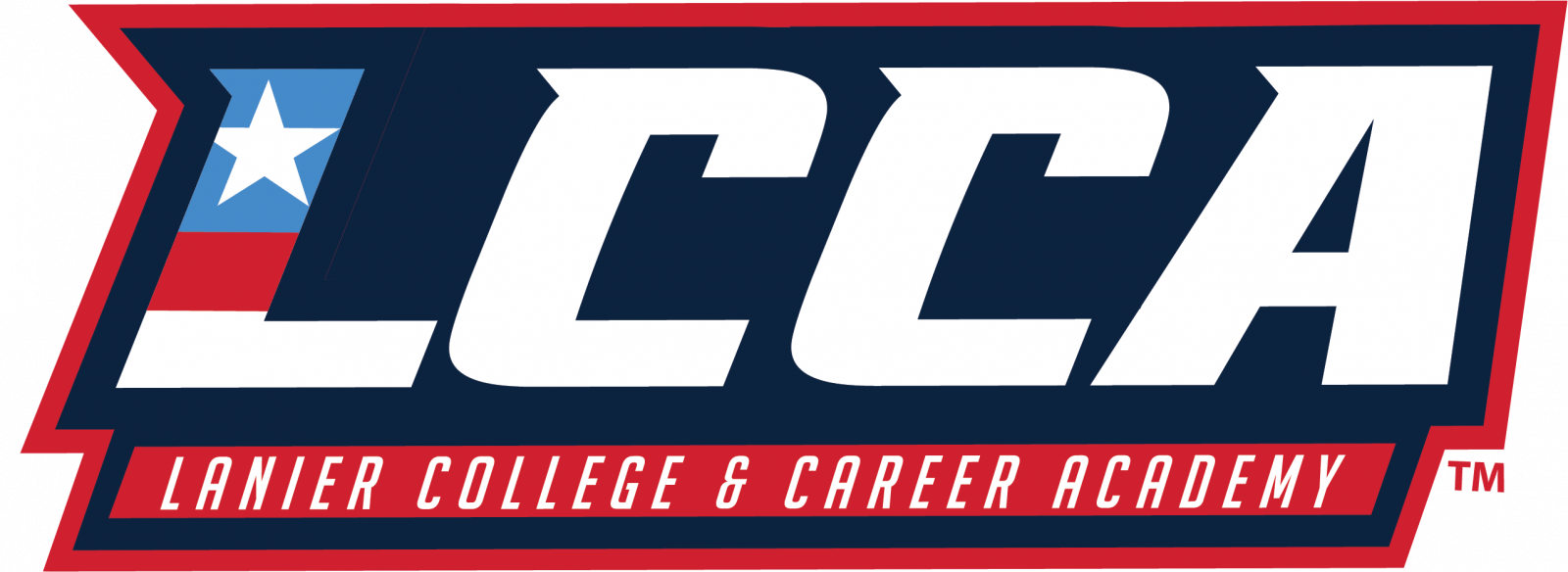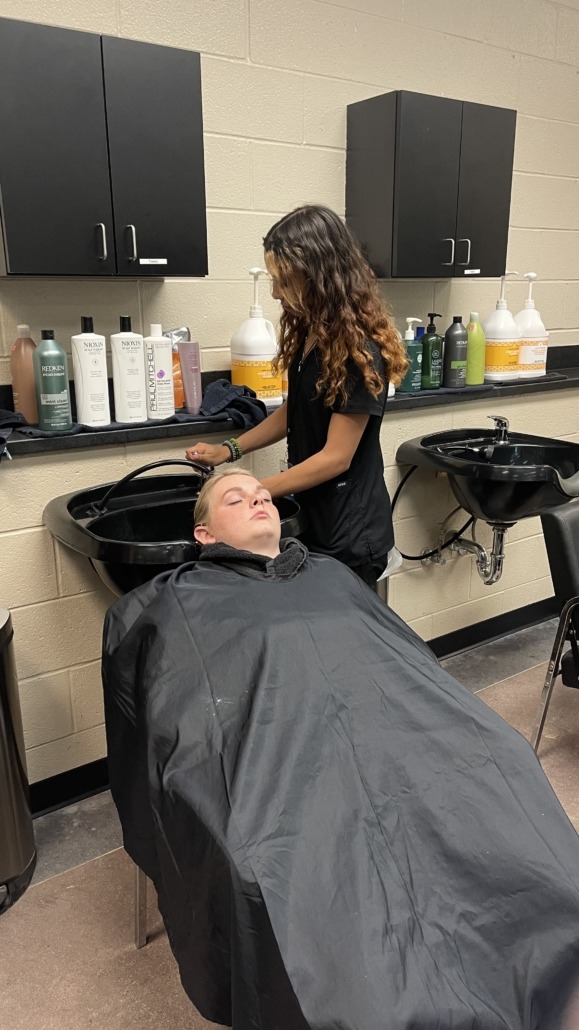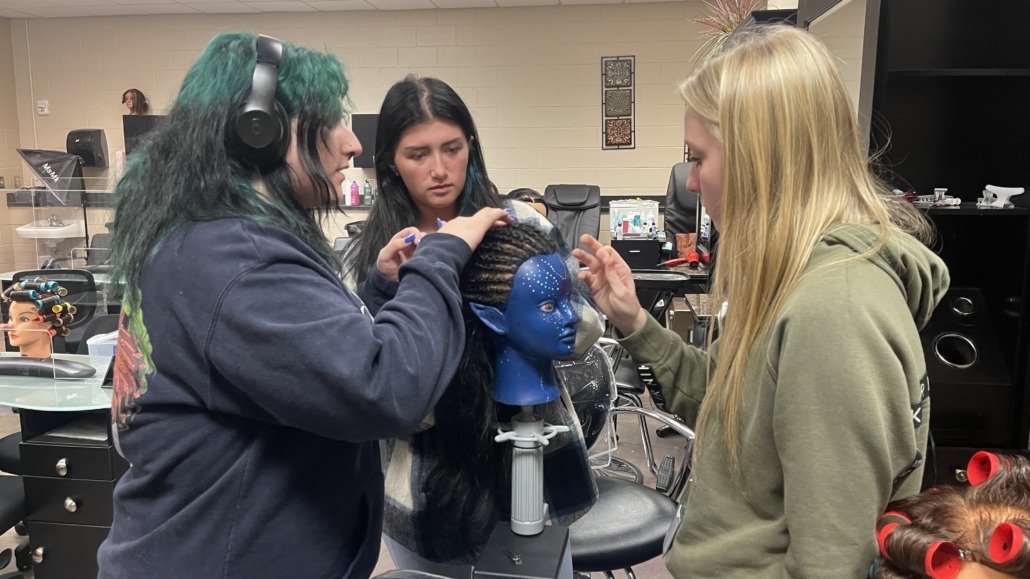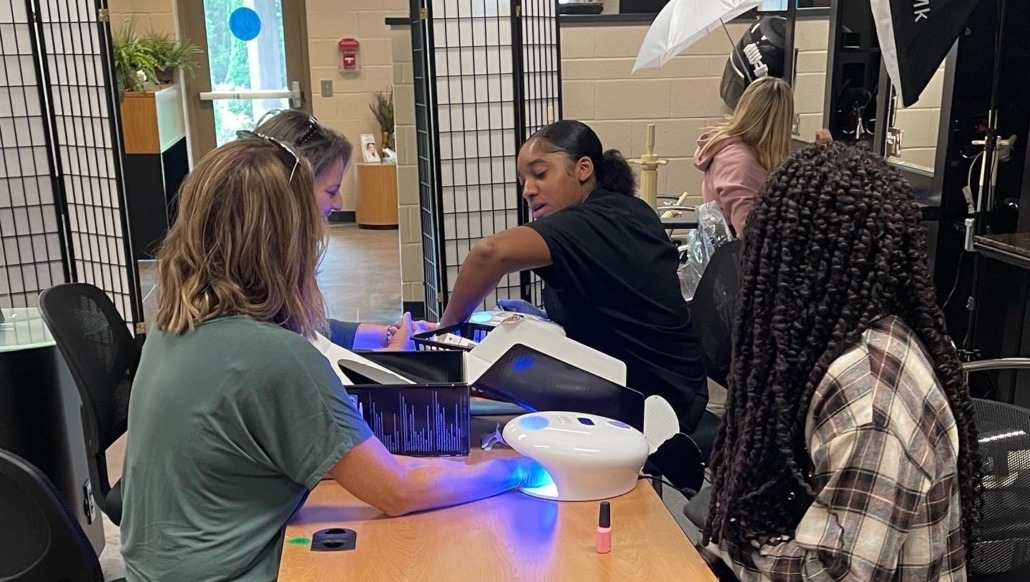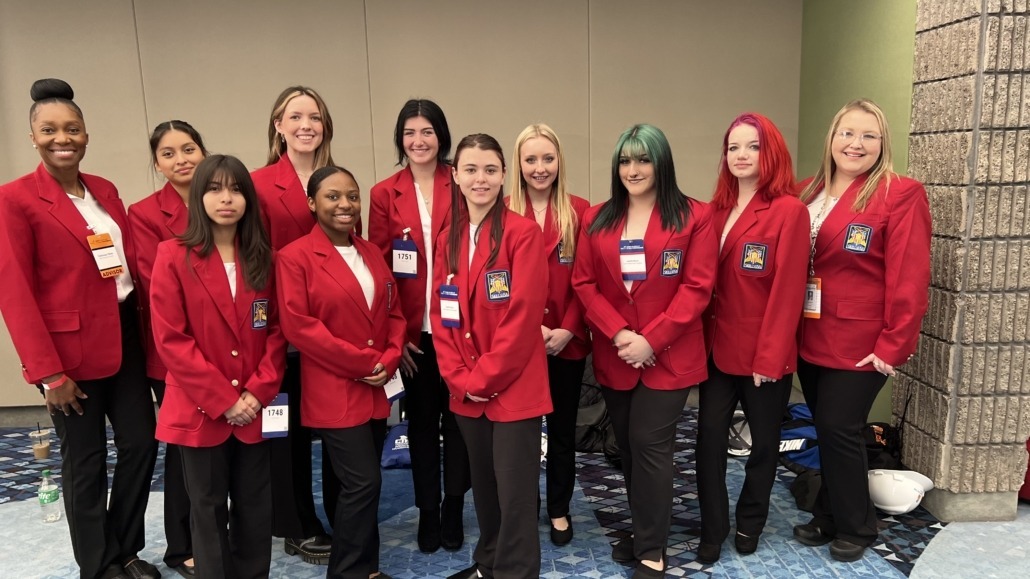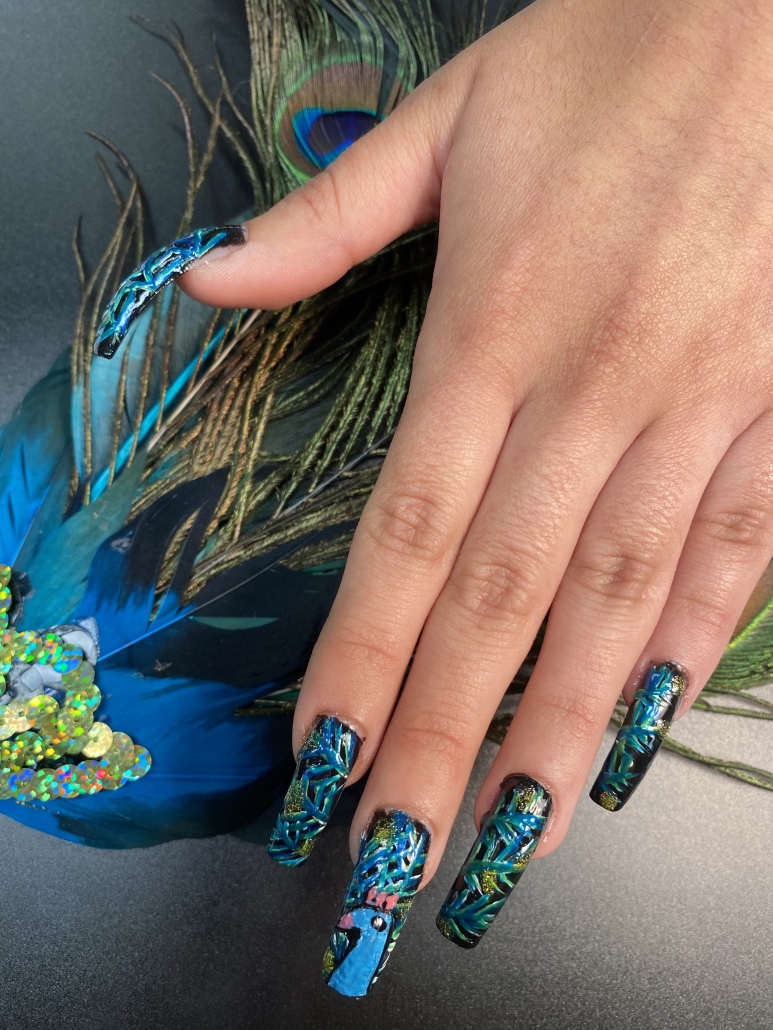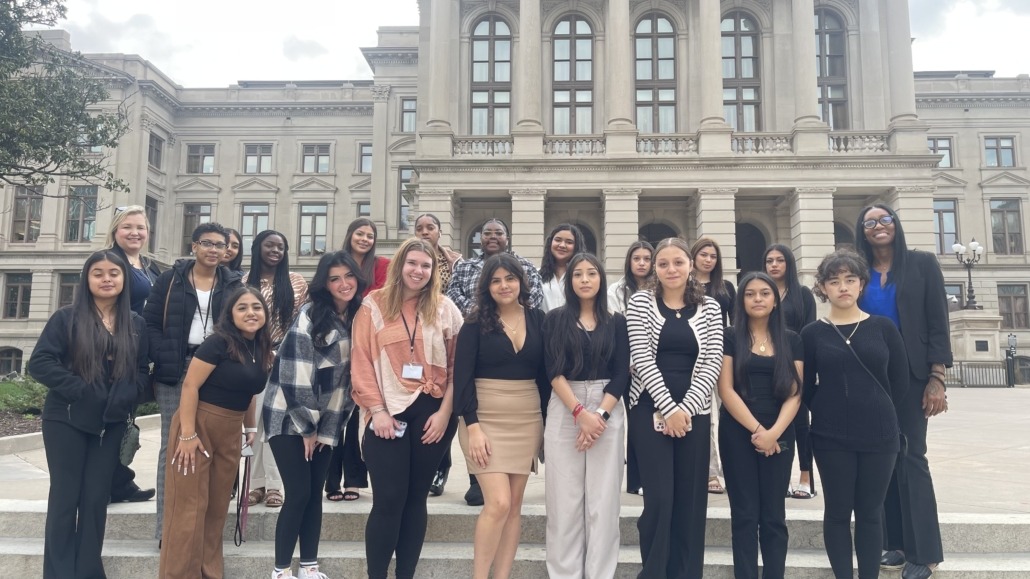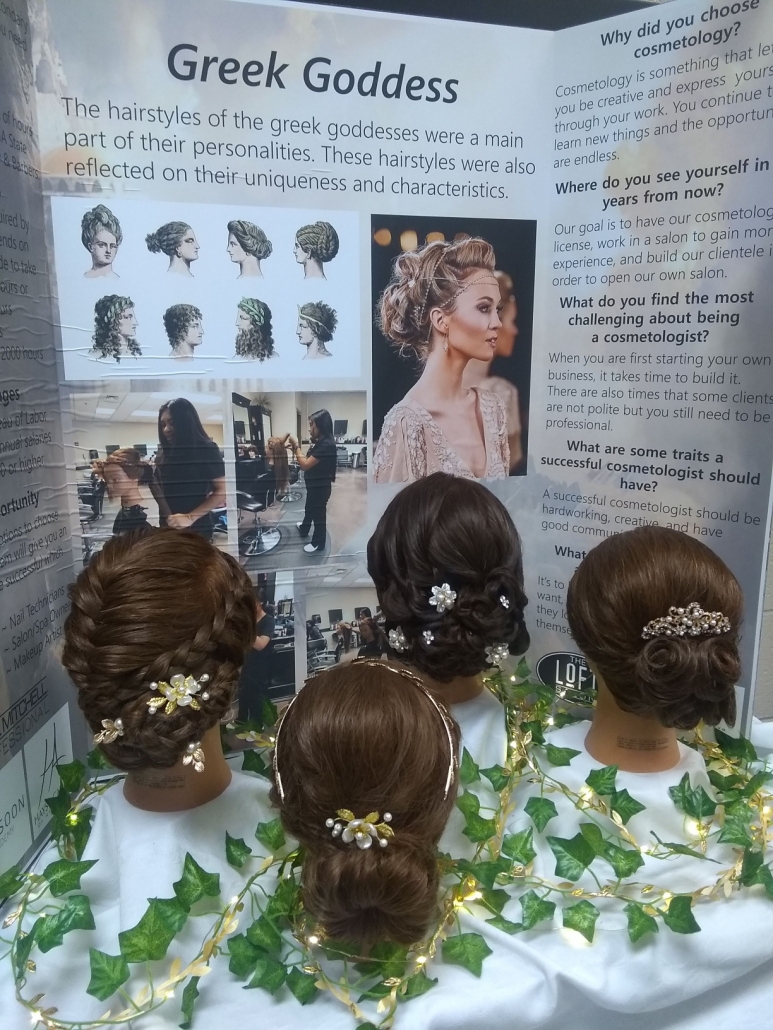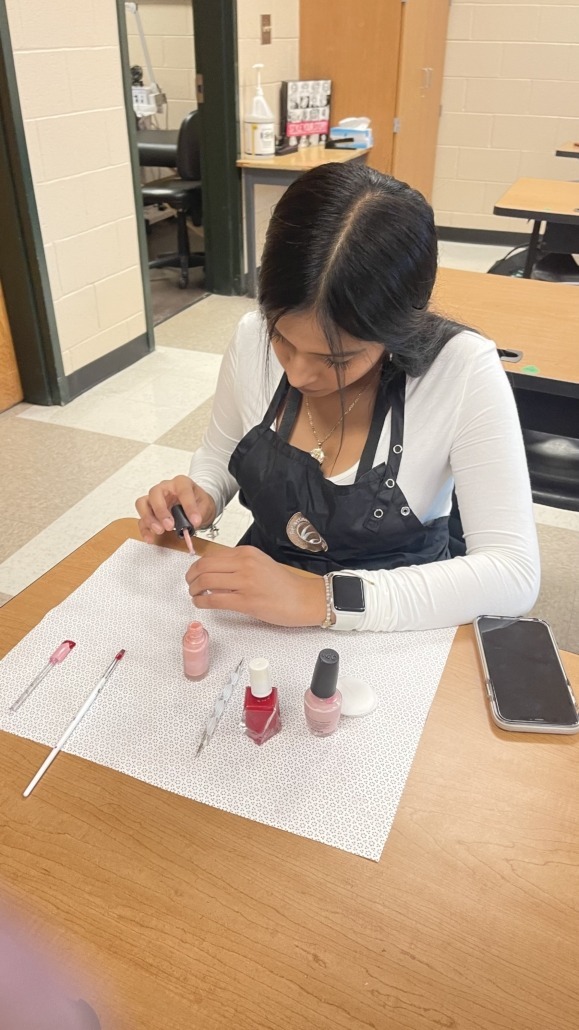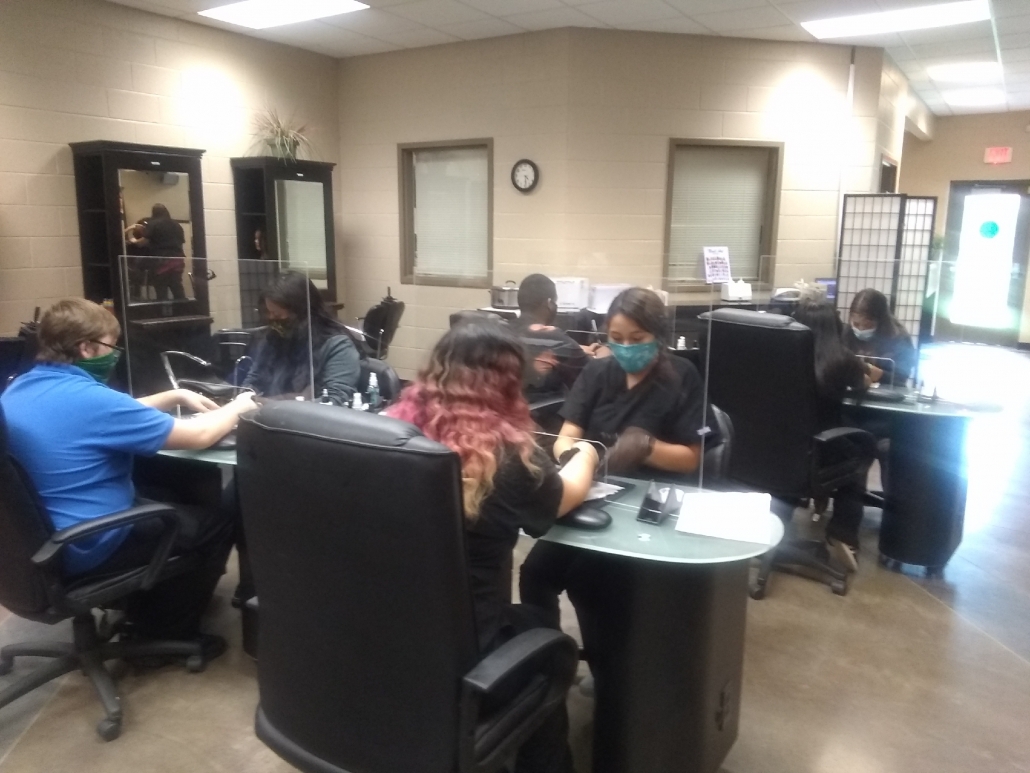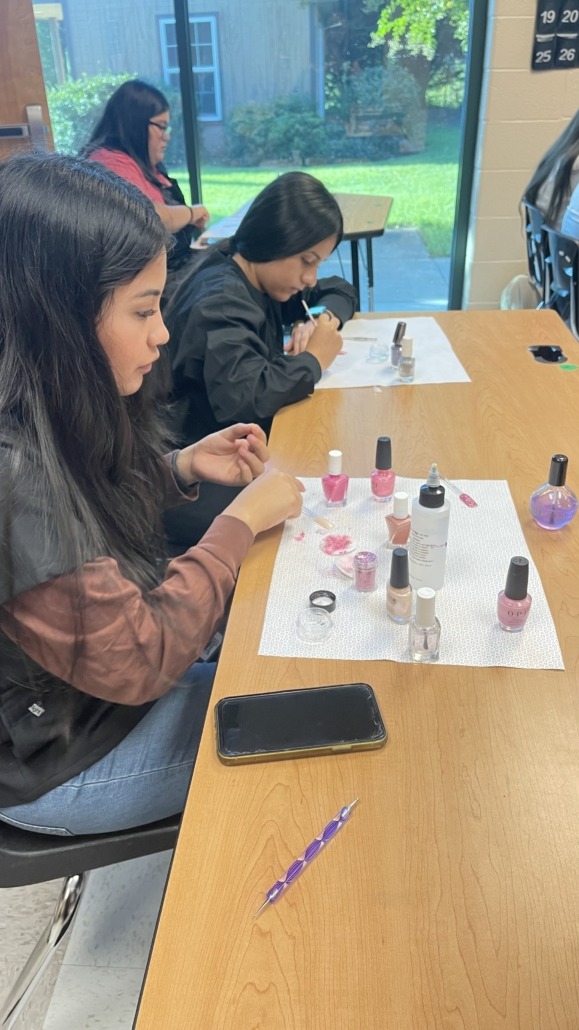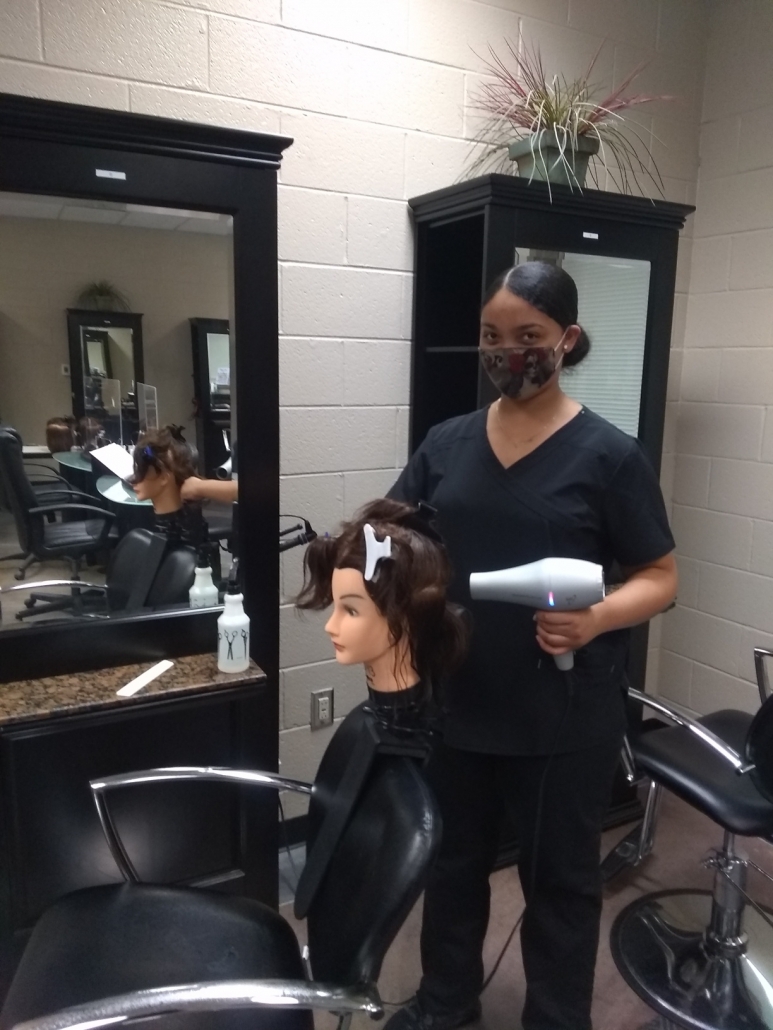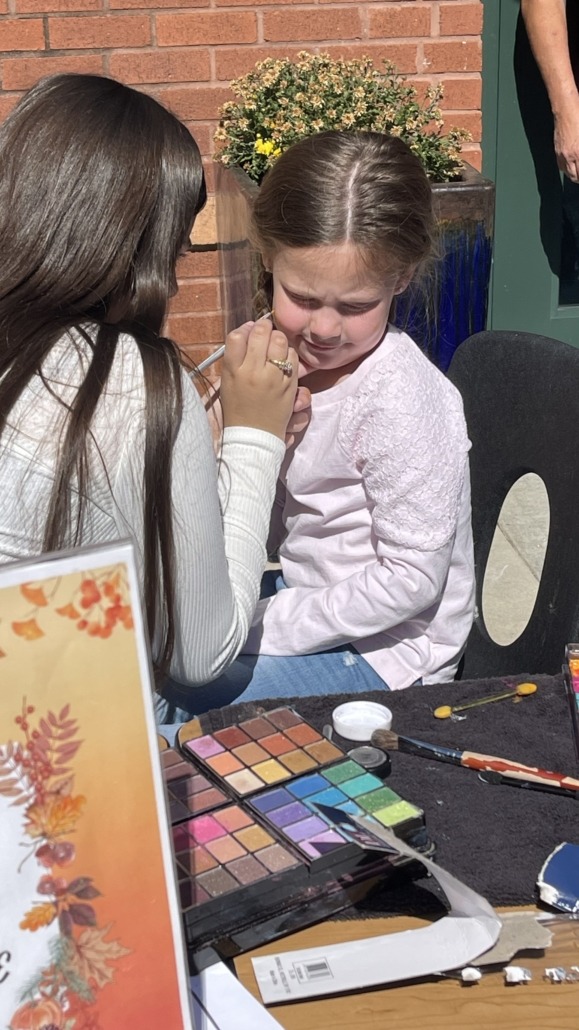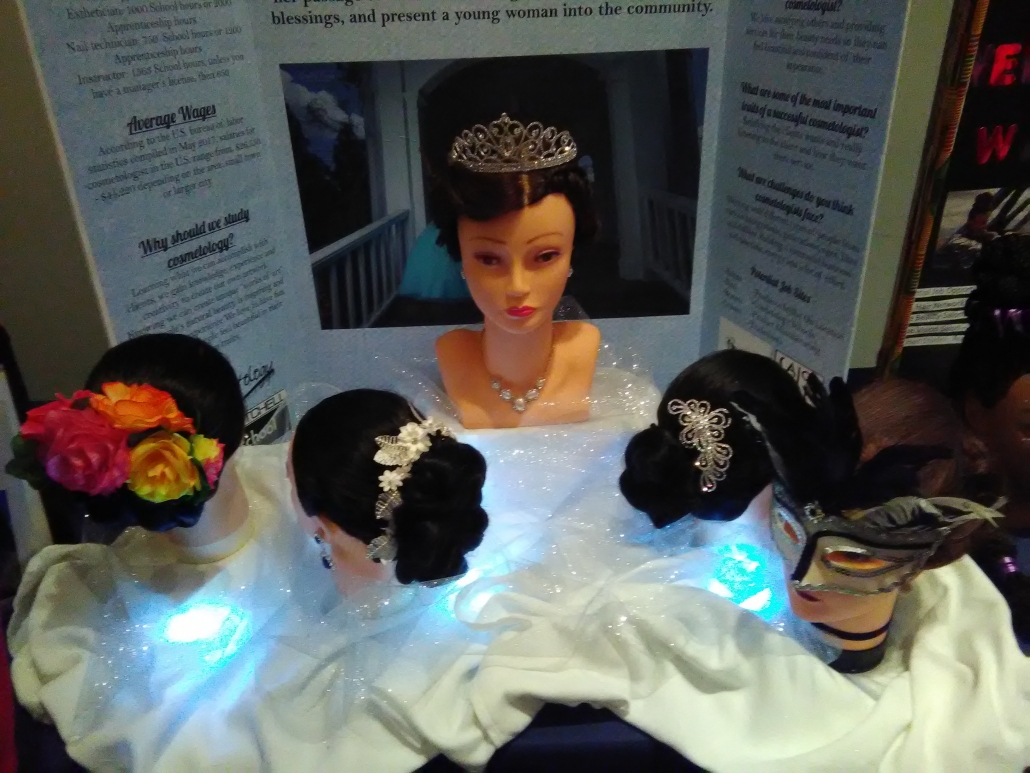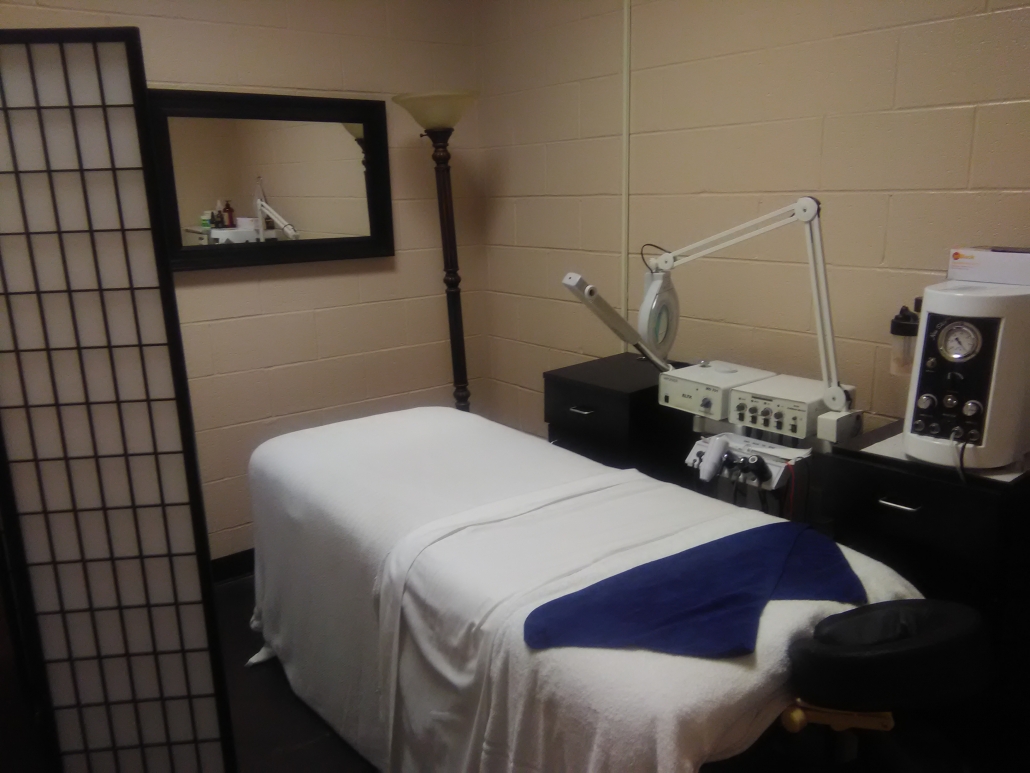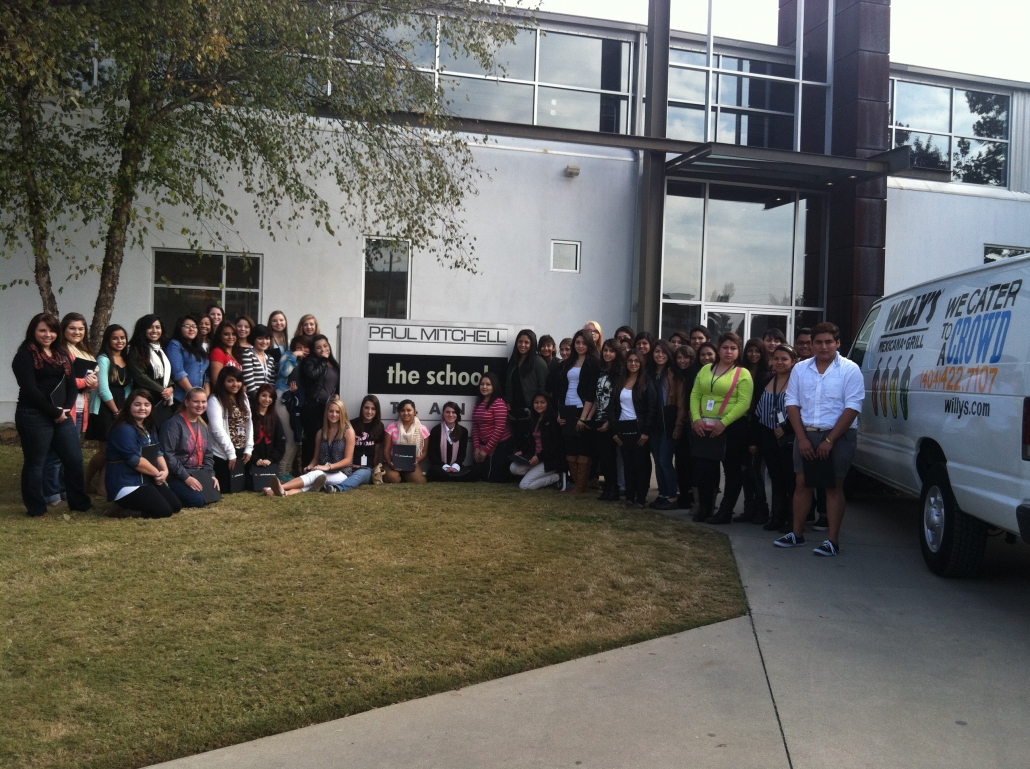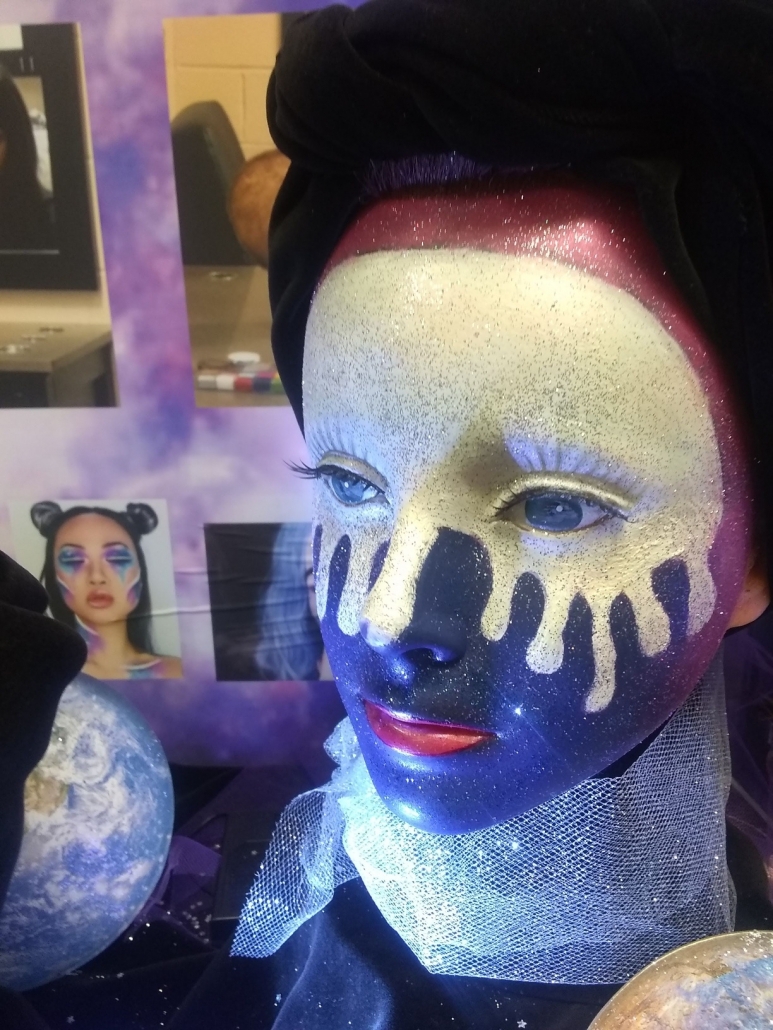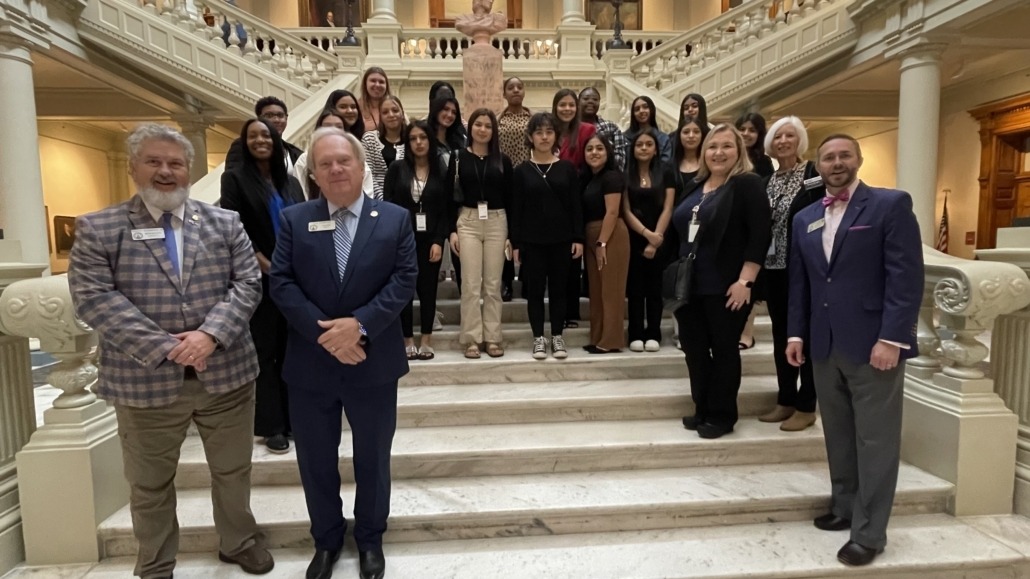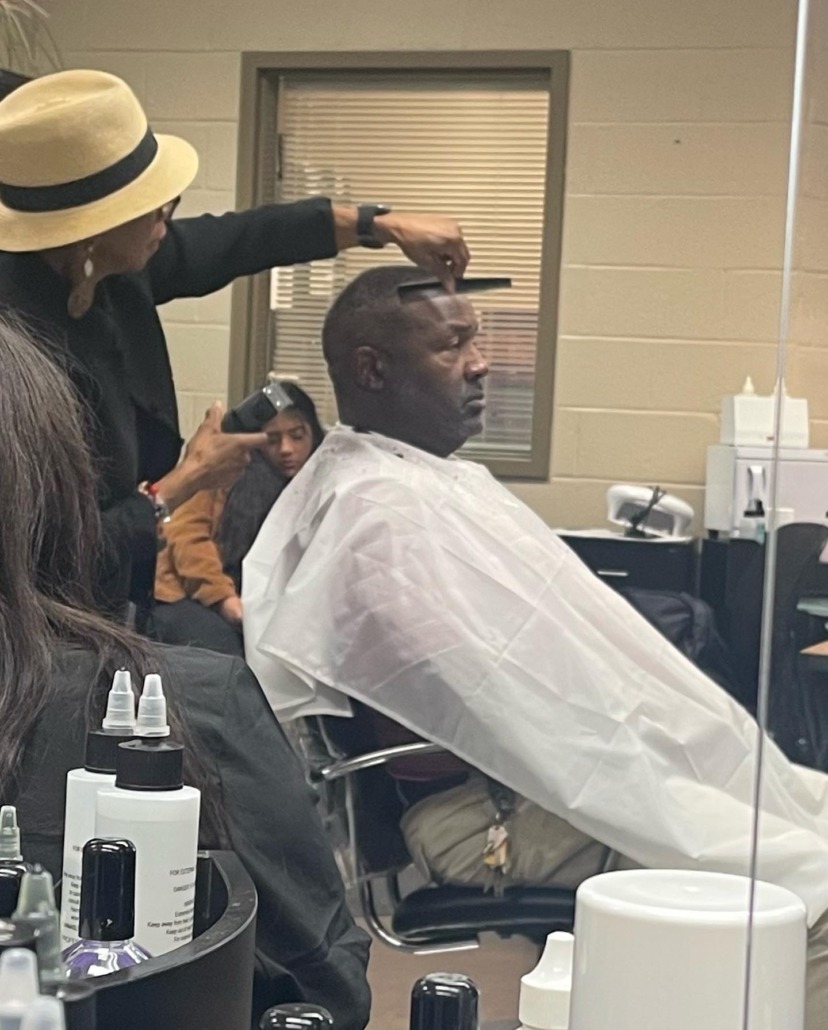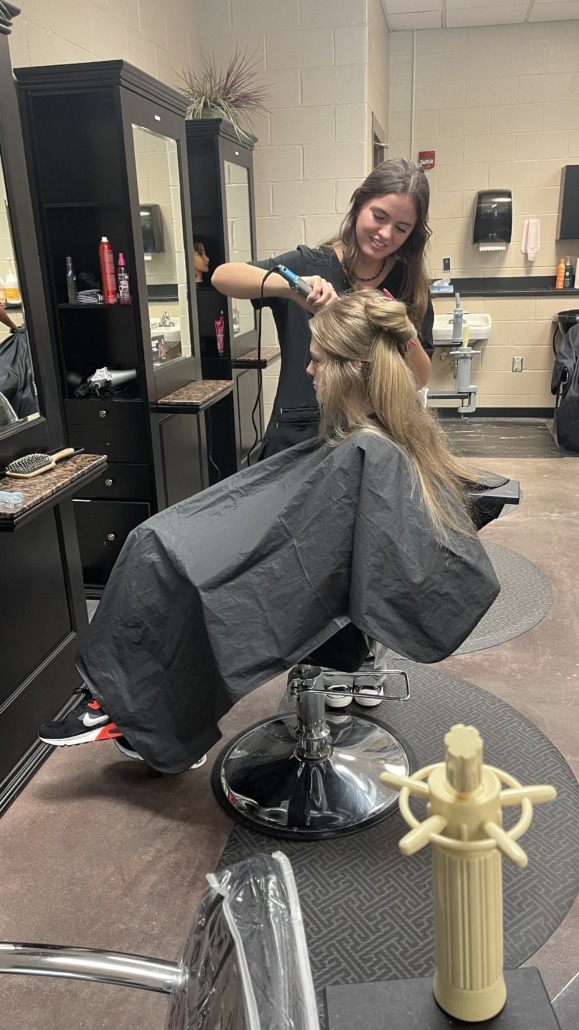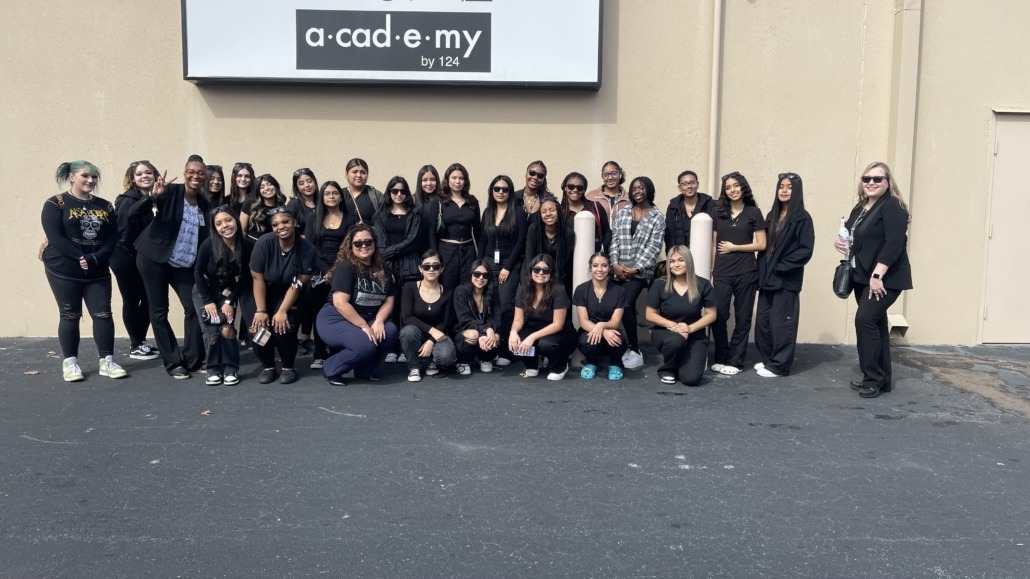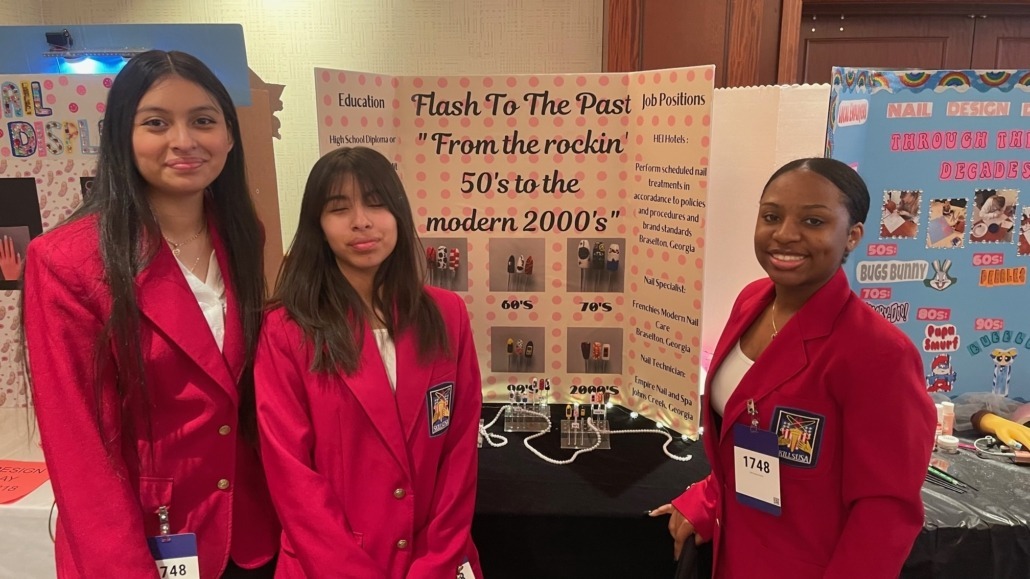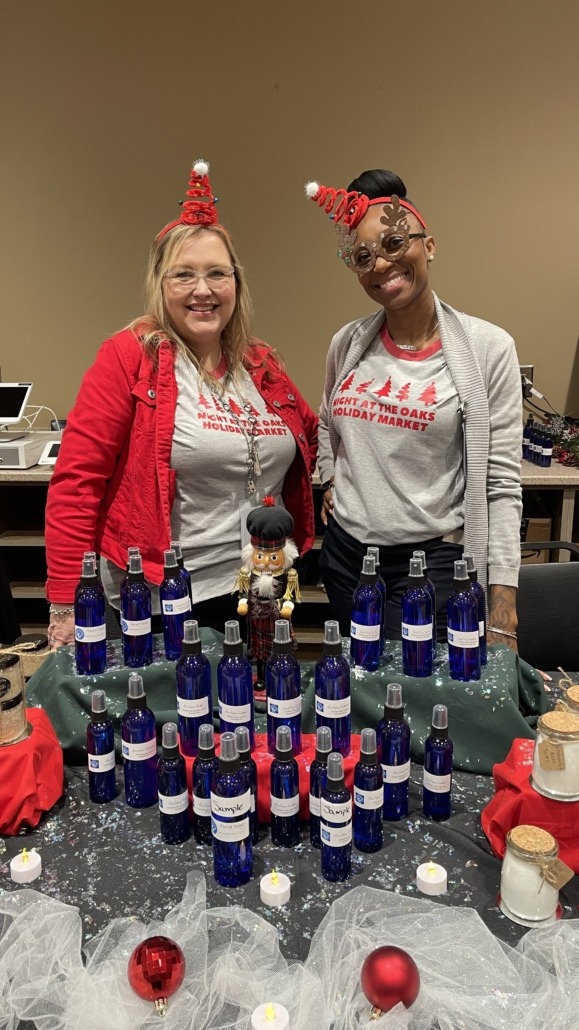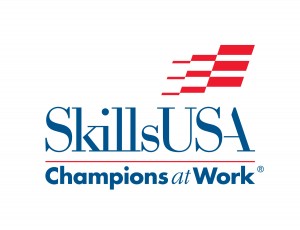Our Cosmetology Pathway is available to any student who wishes to learn about cosmetology and the beauty industry. It consists of 3 classes: Intro to Personal Care Services, Cosmetology Services II, and Cosmetology Services III. Our theory curriculum covers the topics of safety and sanitation, laws/rules and regulations of Georgia State Board of Cosmetology, basic first aid, chemistry, anatomy, diseases and disorders of hair/skin/nails, professional (soft) skills, and SkillsUSA, our Career Tech Student Organization (CTSO). Our hands-on curriculum covers a variety of services including facials, make up, manicures, hair styling, permanent waving, hair relaxers, hair cutting, and hair coloring. Students can transfer up to 500 hours they’ve earned in this pathway to some local post-secondary cosmetology schools after they graduate. We currently have articulation agreements with Lanier Tech and Paul Mitchell Esani.
To be considered a pathway completer for Cosmetology, you must complete all 3 classes (Intro to Personal Care Services, Cosmetology Services II, and Cosmetology Services III) in the pathway. Some schools require passing an End of Course Exam. Please contact the counselor at your homeschool if you’re interested in enrolling in this pathway.
Main Topics
- Hair Coloring
- Hair Cutting
- Facials
- Manicures
- Make Up
- Permanent Waving
- Hair Styling
- Hair Relaxing
- Waxing
